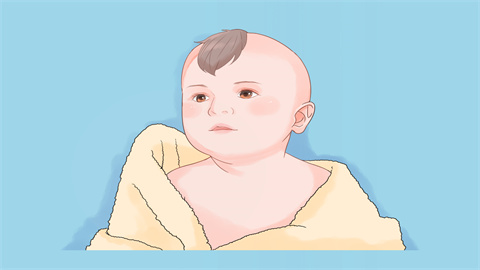What to do about infantile急疹 (roseola)
Generally, infantile急疹 (roseola) is often caused by the following factors: young age with weak immunity, underdeveloped skin barrier function, human herpesvirus 6 (HHV-6) infection, human herpesvirus 7 (HHV-7) infection, and secondary mild respiratory infections. It is recommended to seek timely medical consultation to identify the exact cause, followed by improvement through general treatments and medication under a doctor's guidance. Detailed analysis is as follows:

1. Young age with weak immunity: The immune system of infants is not fully developed and has poor resistance to viruses, making them prone to infections that cause急疹 (roseola). In daily life, ensure infants receive balanced nutrition. Mothers who breastfeed can consume more foods rich in vitamins, and formula-fed infants should be given properly diluted formula. Avoid taking infants to crowded places to reduce the chance of virus exposure.
2. Underdeveloped skin barrier function: Infants have delicate skin with a weaker barrier function, making it easier for viruses to invade through the skin and cause急疹 (roseola). Dress infants in soft, breathable cotton clothing, avoid excessive cleaning or using irritating cleansing products, and apply infant-specific moisturizing cream after bathing to protect the skin barrier.
3. Human herpesvirus 6 infection: This virus is a primary causative agent of infantile急疹 (roseola). Infection can lead to symptoms such as high fever and rash. When body temperature exceeds 38.5°C, fever-reducing medications such as acetaminophen suspension drops, ibuprofen suspension, or pediatric Chai Gui antipyretic granules may be used according to medical advice.
4. Human herpesvirus 7 infection: Infection with this virus can also cause急疹 (roseola) in infants, with symptoms similar to those of HHV-6 infection, possibly accompanied by mild irritability. In addition to symptomatic fever treatment, medications such as recombinant human interferon α2b gel, pediatric Shukiao Qingre granules, and Pudilan Xiaoyan oral liquid may be used as auxiliary treatments according to medical advice.
5. Secondary mild respiratory infection: During the period of急疹 (roseola), infants experience reduced immunity, making them susceptible to secondary mild respiratory infections, which can worsen discomfort. If mild coughing or runny nose occurs, medications such as pediatric cough syrup, pediatric paracetamol chlorpheniramine maleate granules, or ambroxol and clenbuterol oral solution may be used to relieve symptoms according to medical advice.
In daily care, closely monitor the infant's mental status, body temperature, and rash changes. Avoid scratching the skin during the rash phase; trimming the infant's nails or using protective gloves can help. Provide bland, easily digestible food, such as rice porridge and vegetable puree, to help infants get through the illness smoothly.









